— Par Michèle Bigot —
 Voici l’exemple d’une réussite totale : un spectacle à la fois actuel et intemporel, drôle et dramatique, émouvant et esthétique, tout y est. C’est l’histoire de six femmes en prison, qui se retrouvent dans la bibliothèque le soir de Noël et tentent de conjurer la tristesse par le jeu et la solidarité. Histoire éminemment théâtrale où l’individu conquiert sa liberté par le jeu, le rôle, le mime et le texte. Drôlerie suprême, les filles choisissent d’investir un drame de Musset, et pas n’importe lequel : On ne badine pas avec l’amour. Mohamed Kacimi nous a déjà habitués à ses performances dramatiques : on a vu à Avignon en 2017 Moi, la mort, je l’aime, comme vous aimez la vie. Il réussit comme personne à s’emparer des thèmes les plus tragiques et les plus actuels sans sombrer dans le pathos. Son écriture se signale par une finesse et une justesse d’analyse hors pair. Elle nous fait vibrer en mêlant brillamment le comique et le grave. Ses personnages sont alternativement touchants et drôles. Barbara, Rosa, Marylou, Zélie, Lily et Frida sont des femmes ordinaires : leur crime est d’avoir trop aimé ou d’avoir été trop pauvres pour élever un enfant. Femmes détenues, que personne ne vient visiter, et surtout pas leurs compagnons (« courage, fuyons »), coupées du monde mais solidaires dans leur malheur et ingénieuses. Et voilà qu’elles découvrent le pouvoir de la littérature, la force des mots si on les habite, la magie du théâtre qui transfigure la vie.
Voici l’exemple d’une réussite totale : un spectacle à la fois actuel et intemporel, drôle et dramatique, émouvant et esthétique, tout y est. C’est l’histoire de six femmes en prison, qui se retrouvent dans la bibliothèque le soir de Noël et tentent de conjurer la tristesse par le jeu et la solidarité. Histoire éminemment théâtrale où l’individu conquiert sa liberté par le jeu, le rôle, le mime et le texte. Drôlerie suprême, les filles choisissent d’investir un drame de Musset, et pas n’importe lequel : On ne badine pas avec l’amour. Mohamed Kacimi nous a déjà habitués à ses performances dramatiques : on a vu à Avignon en 2017 Moi, la mort, je l’aime, comme vous aimez la vie. Il réussit comme personne à s’emparer des thèmes les plus tragiques et les plus actuels sans sombrer dans le pathos. Son écriture se signale par une finesse et une justesse d’analyse hors pair. Elle nous fait vibrer en mêlant brillamment le comique et le grave. Ses personnages sont alternativement touchants et drôles. Barbara, Rosa, Marylou, Zélie, Lily et Frida sont des femmes ordinaires : leur crime est d’avoir trop aimé ou d’avoir été trop pauvres pour élever un enfant. Femmes détenues, que personne ne vient visiter, et surtout pas leurs compagnons (« courage, fuyons »), coupées du monde mais solidaires dans leur malheur et ingénieuses. Et voilà qu’elles découvrent le pouvoir de la littérature, la force des mots si on les habite, la magie du théâtre qui transfigure la vie.
La mise en scène de Marjorie Nakache, le jeu parfaitement réglé des six comédiennes, les trouvailles de scénographie donnent à l’ensemble une force quasi shakespearienne.
Bravo au Studio Théâtre de Stains, qui a l’audace de porter sur les planches cette tragicomédie, preuve s’il en était besoin que le théâtre populaire n’est pas une idée de songe-creux et que 9.3 peut nous apporter le meilleur de l’art dramatique.
Michèle Bigot
Festival d’Avignon off 2019,
La Chapelle du verbe incarné 05>27/07 2019
Mise en scène de Marjorie Nakache
Texte de Mohamed Kacimi
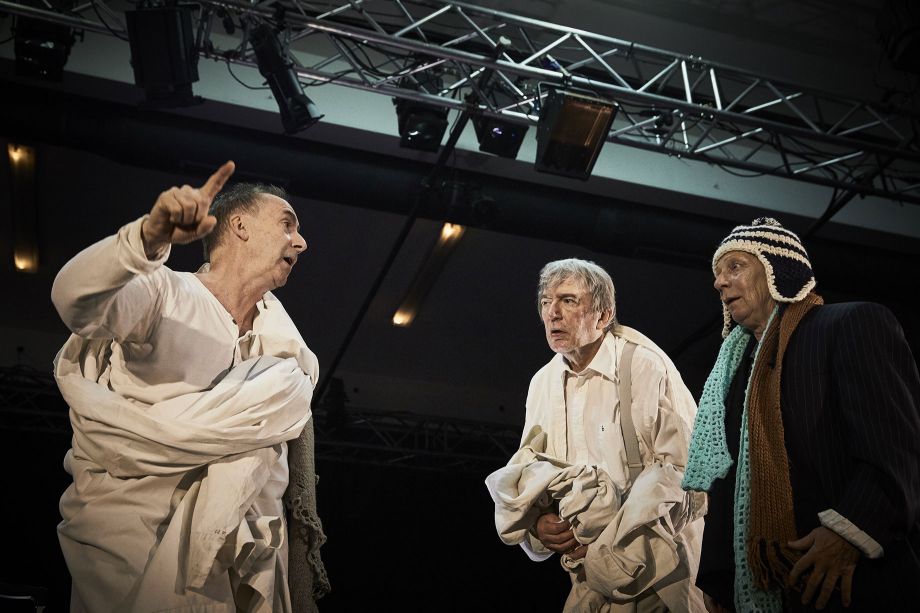
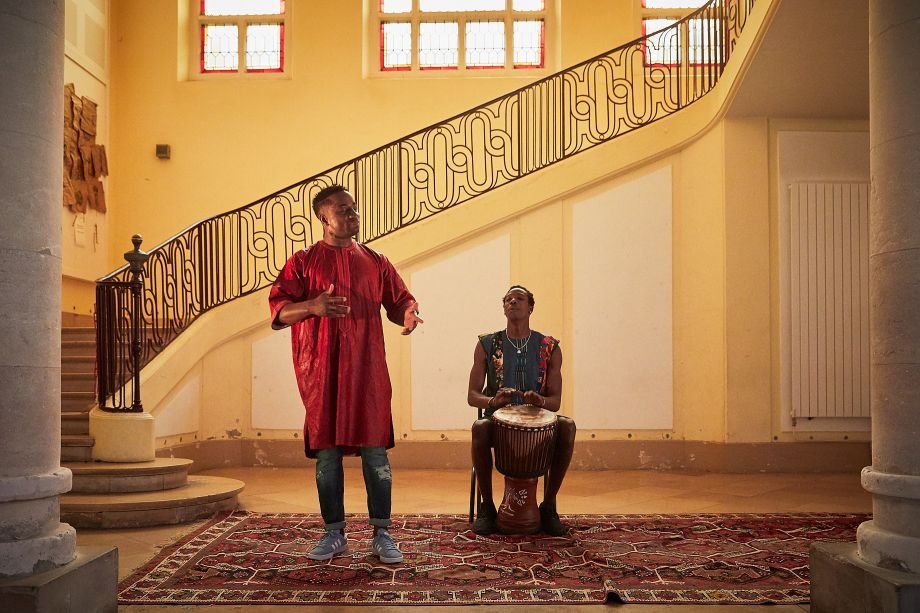
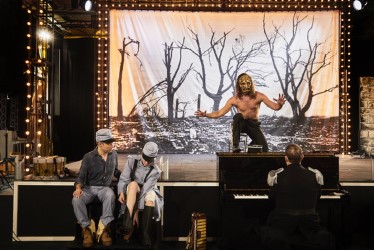
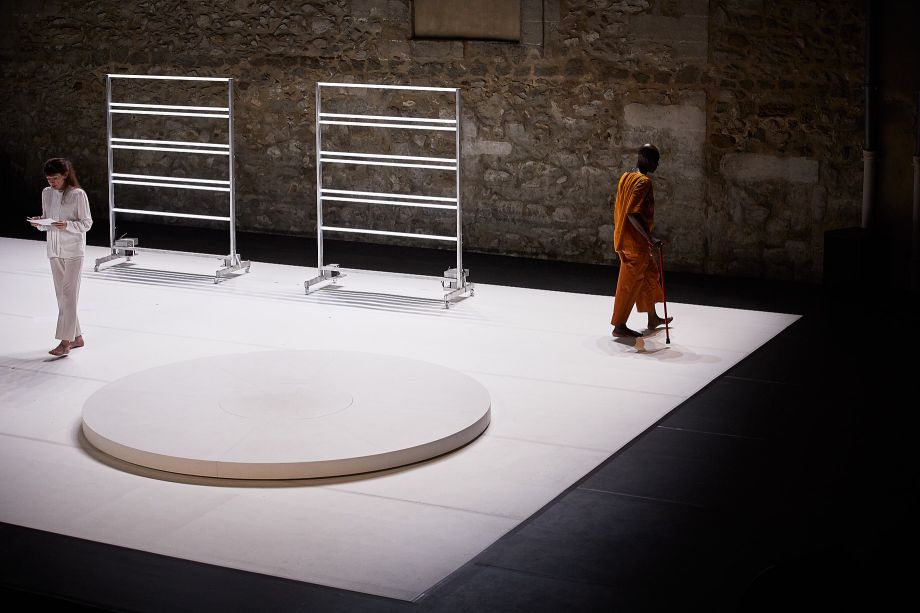
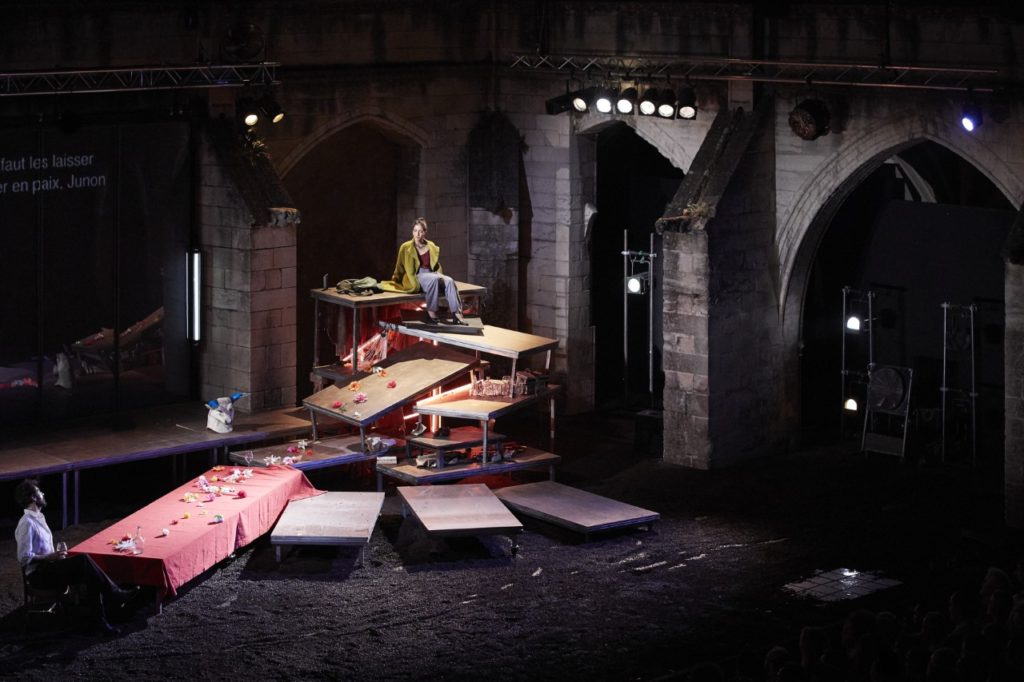
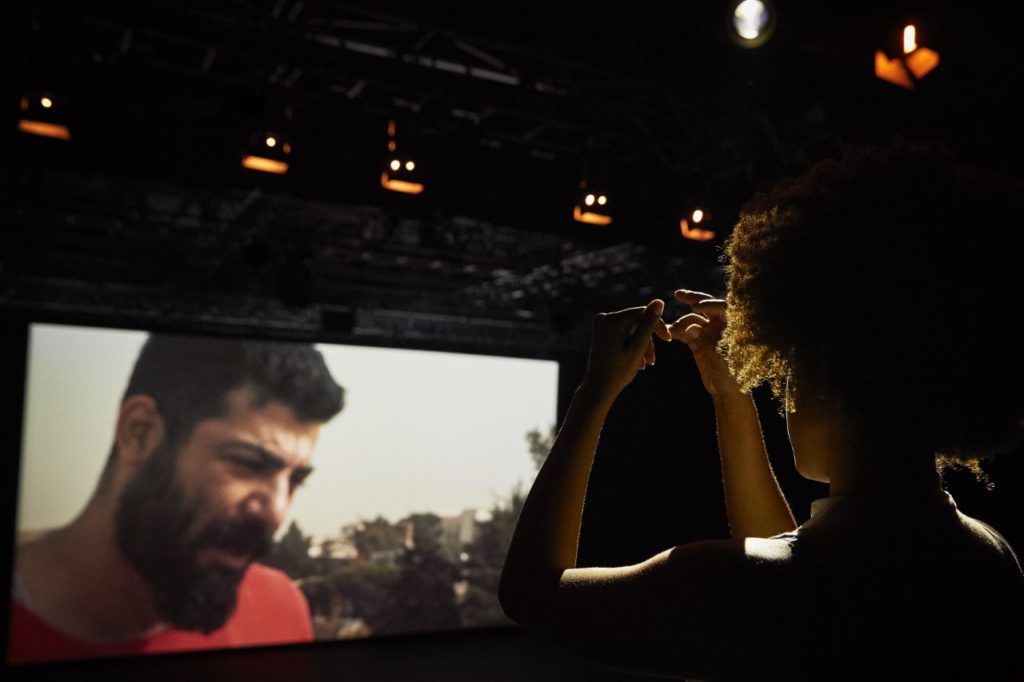
 Voici l’exemple d’une réussite totale : un spectacle à la fois actuel et intemporel, drôle et dramatique, émouvant et esthétique, tout y est. C’est l’histoire de six femmes en prison, qui se retrouvent dans la bibliothèque le soir de Noël et tentent de conjurer la tristesse par le jeu et la solidarité. Histoire éminemment théâtrale où l’individu conquiert sa liberté par le jeu, le rôle, le mime et le texte. Drôlerie suprême, les filles choisissent d’investir un drame de Musset, et pas n’importe lequel : On ne badine pas avec l’amour. Mohamed Kacimi nous a déjà habitués à ses performances dramatiques : on a vu à Avignon en 2017 Moi, la mort, je l’aime, comme vous aimez la vie. Il réussit comme personne à s’emparer des thèmes les plus tragiques et les plus actuels sans sombrer dans le pathos. Son écriture se signale par une finesse et une justesse d’analyse hors pair. Elle nous fait vibrer en mêlant brillamment le comique et le grave. Ses personnages sont alternativement touchants et drôles. Barbara, Rosa, Marylou, Zélie, Lily et Frida sont des femmes ordinaires : leur crime est d’avoir trop aimé ou d’avoir été trop pauvres pour élever un enfant. Femmes détenues, que personne ne vient visiter, et surtout pas leurs compagnons (« courage, fuyons »), coupées du monde mais solidaires dans leur malheur et ingénieuses. Et voilà qu’elles découvrent le pouvoir de la littérature, la force des mots si on les habite, la magie du théâtre qui transfigure la vie.
Voici l’exemple d’une réussite totale : un spectacle à la fois actuel et intemporel, drôle et dramatique, émouvant et esthétique, tout y est. C’est l’histoire de six femmes en prison, qui se retrouvent dans la bibliothèque le soir de Noël et tentent de conjurer la tristesse par le jeu et la solidarité. Histoire éminemment théâtrale où l’individu conquiert sa liberté par le jeu, le rôle, le mime et le texte. Drôlerie suprême, les filles choisissent d’investir un drame de Musset, et pas n’importe lequel : On ne badine pas avec l’amour. Mohamed Kacimi nous a déjà habitués à ses performances dramatiques : on a vu à Avignon en 2017 Moi, la mort, je l’aime, comme vous aimez la vie. Il réussit comme personne à s’emparer des thèmes les plus tragiques et les plus actuels sans sombrer dans le pathos. Son écriture se signale par une finesse et une justesse d’analyse hors pair. Elle nous fait vibrer en mêlant brillamment le comique et le grave. Ses personnages sont alternativement touchants et drôles. Barbara, Rosa, Marylou, Zélie, Lily et Frida sont des femmes ordinaires : leur crime est d’avoir trop aimé ou d’avoir été trop pauvres pour élever un enfant. Femmes détenues, que personne ne vient visiter, et surtout pas leurs compagnons (« courage, fuyons »), coupées du monde mais solidaires dans leur malheur et ingénieuses. Et voilà qu’elles découvrent le pouvoir de la littérature, la force des mots si on les habite, la magie du théâtre qui transfigure la vie.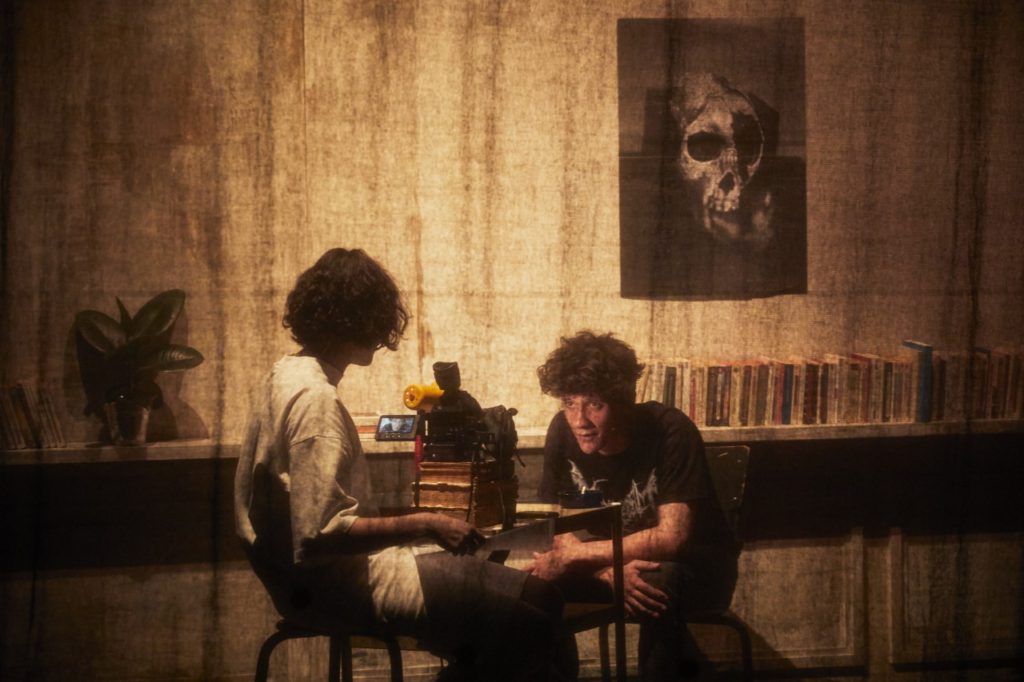
 Théâtre noir, l’expression est polysémique. Elle renvoie d’une part au Théâtre noir de Prague dans lequel des acteurs entièrement vêtus de noir jouent devant un fond noir leur permettant de choisir ce qu’ils veulent montrer aux spectateurs, comme des objets lumineux, phosphorescents, voire des personnages qui flottent dans l’espace. (
Théâtre noir, l’expression est polysémique. Elle renvoie d’une part au Théâtre noir de Prague dans lequel des acteurs entièrement vêtus de noir jouent devant un fond noir leur permettant de choisir ce qu’ils veulent montrer aux spectateurs, comme des objets lumineux, phosphorescents, voire des personnages qui flottent dans l’espace. (